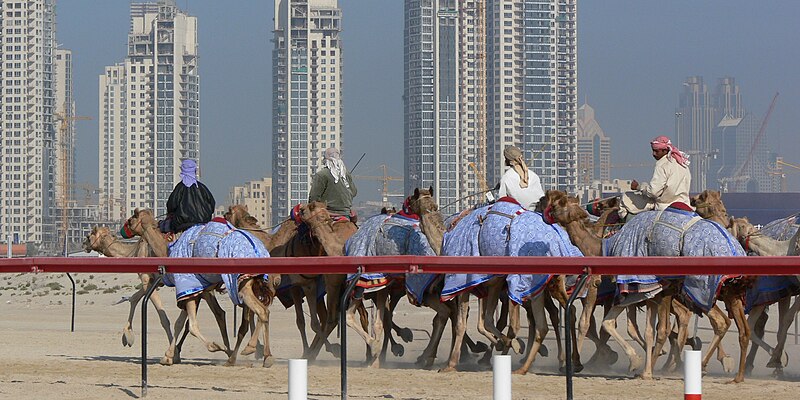Clone your camel: beauty pageants, races spur high demand
Date: 13.9.2021
Cloning is in high demand in the competitive world of camel beauty pageants, leaving scientists at a Dubai clinic working round the clock to produce carbon-copy beasts.
 Not every animal is blessed with sought-after drooping lips and a tall, elegant neck, but technology now allows wealthy clients to replace their most beautiful camel with one just like it.
Not every animal is blessed with sought-after drooping lips and a tall, elegant neck, but technology now allows wealthy clients to replace their most beautiful camel with one just like it.
At the Reproductive Biotechnology Center, with views of the UAE city's towering skyscrapers, scientists pore over microscopes while dozens of cloned camels roam outside.
"We have so much demand for cloning camels that we are not able to keep up," the centre's scientific director Nisar Wani told AFP.
Beauty pageants are not the only driver of the camel cloning industry. Many customers want to reproduce racing camels, or animals that produce large amounts of milk. But "beauty queens" are the most popular order. Gulf clients will pay between 200,000 and 400,000 dirham ($54,500-$109,000) to duplicate a dromedary.
The camels are paraded at dusty racetracks around the region and scrutinised by judges, with occasional discoveries of Botox and cosmetic fillers adding a spice of scandal to the high-stakes contests.























